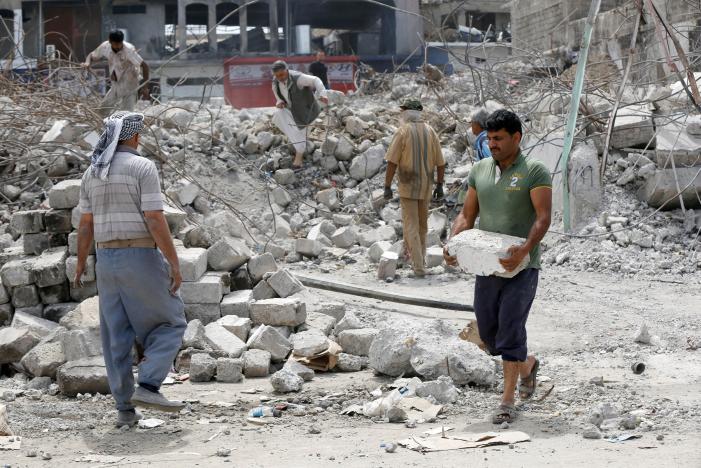70 % of western Anbar towns destroyed by war against Islamic State: Official

Workers remove rubble during the rebuilding of a building destroyed during fighting between Iraqi forces and Islamic state fighters, eastern Mosul, Iraq, April 21, 2017. REUTERS/ Muhammad Hamed

“The rate of destruction exceeds 70 percent in the liberated regions of Rawa and Qaim, with a high rate of destruction in Annah, in west of Anbar,” Fahd al-Rashed, a member of Anbar provincial council, told BasNews website. “Preliminary estimates showed the destruction of 26 schools, blasting most of the governmental authorities, booby-trapping of 17 service projects and destroying of seven pivotal bridges.”
“All water and electricity stations as well as crossings were destroyed in the liberated Upper Euphrates towns. Around 383 houses were totally destroyed, in addition to huge damages in houses of civilians and stores,” he added.
Rashed also indicated destruction in electricity networks as well as presence of hundreds of landmines placed by IS in west of Anbar, which requires governmental and international support to remove them and defuse the booby-trapped houses.
Hussein Ali, mayor of Rawa town, told Baghdad Today, earlier today, that over twenty five persons were killed as booby-trapped houses exploded in the town.
Iraqi troops retook Rawa from Islamic State members in November.
Violence in the country has surged further with the emergence of Islamic State Sunni extremist militants who proclaimed an “Islamic Caliphate” in Iraq and Syria in 2014.
